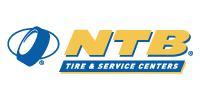
SHOP for TIRES
All About Tires - Everything You Should Know
Tires are an important part of your vehicle. They are not something you can just ignore and push aside, as your safety, from entering the vehicle to exiting it, depends to a great extent on the condition and quality of your tires.
Tires for Your Vehicles
When you are looking for the right kind of tires for your vehicle, there are certain things you look out for. Irrespective of the requirements to meet the different weather conditions, the standard things that any car owner would want to have when choosing tires for their car would be performance, coupled with safety, reliability, and longevity. We spend a lot on our tires, so, if they are not durable and don't give us the service we deserve, anyone would be annoyed
For passenger cars:
The best tires for passenger cars should have good grip round the corners which should help them transmit greater braking force onto the road. They should be lasting and should provide good service for thousands of kilometers. The tires should be such that they help your car realize its potential. Another important aspect about tires for passenger vehicles is that they should provide a comfortable ride. This is done by allowing the sidewalls of the tires to flex.
Tires for your SUV:
Sports utility vehicles are a breed apart. They are certainly not as delicate as passenger vehicles and are meant for weathering rough terrain. Thus, tires for these vehicles need to have good road-hugging properties so that it can traverse back tracks with ease. All terrain tires are the most suited for these vehicles, and they should be supple enough to take on all road conditions.
For light trucks:
For these vehicles, it is important to get tires that are made for the working vehicle. For light trucks, you need tires that are long-wearing and that have excellent grip in all kinds of weather. They should be able to battle any road condition.
Depending on the type of vehicle you have, you would certainly look at different types of tires to choose from. Your vehicle, whichever it may be, is your leader. This means that traction is an important aspect of these tires. It is traction that allows your vehicle to accelerate down the road, turn the corner, and come to a stop; thus, traction should be a key focus in these tires.
Things You Didn't Know about Tires
- Neither acceleration nor braking traction can improve by increasing the width of a tire. A wider tire will have a shorter contact patch. This is something you wouldn't want to have, as the goal is to have a greater longitudinal grip. Hence, a longer and not a wider contact patch would help you climb faster to maximum braking grip.
- Wide tires increase cornering grip. Wide tires are used to maximize traction in all directions. This allows for an even pressure distribution throughout the contact patch.
- A run-flat tire can run for more than 100 miles after it loses pressure. Typically, a deflated run-flat tire can cover about 50 miles at 50 mph. However, if you slow down, you can cover an even greater distance. The range roughly doubles if you drop your speed to below 40mph.
- Static electricity building up has become a concern. Modern tire compounds have become less conductive as manufacturers have reduced the amount of carbon black in rubber compounds. This was done to cut weight and rolling resistance. Thus, using a grounding strip or an antenna tread design in the tire is a good idea.
Tire Maintenance for Longevity and Optimal Performance
All in all, proper maintenance and care of your tires is a must when it comes to keeping your vehicle in good shape. So, take the time, at least every month or before going on a long trip, to get your tires checked.
There are three important things that must be kept in mind when thinking about proper tire maintenance. These are:
Pressure: Under inflation causes tire stress, irregular wear, and loss of control, which could lead to accidents. Even after losing half of its inflation pressure, the tire will not appear to be flat.
Alignment: When you hit a curb or pothole, your alignment may shift, and this can damage your tires. Thus, it is important to check the alignment regularly to make sure your vehicle is properly aligned.
Tread: Advanced wear can reduce the ability of the tread to grip the road in adverse conditions. So, check for signs of damage or uneven wear on your tires.
Now you know everything that you ought to about tires. Use this knowledge to your advantage to keep your tires functioning the way they are meant to.
